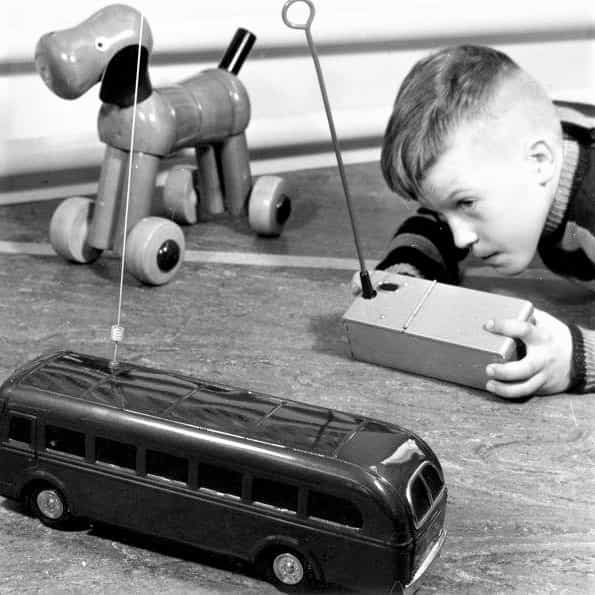Is gender a social construct?
Do we identify as man, woman, or in between because of social conditions and teachings?

Is gender a social construct?
Agender, Bigender, Butch, Gender outlaw… Where do they all come from? And are all these labels motivated, or are they just a way to express a disaccord with the “normal”, boring binary male and female?
So, before jumping into all the terminology, I set out to try to answer the first question… Is gender a social construct, or is it something we are born with?
This is what World Health Organization has to say about it:
- Gender refers to the characteristics of women, men, girls, and boys that are socially constructed. This includes norms, behaviors, and roles associated with being a woman, man, girl, or boy, as well as relationships with each other. As a social construct, gender varies from society to society and can change over time.
And this is what the Oxford English dictionary has to say about it:
- (Gender is…) The state of being male or female as expressed by social or cultural distinctions and differences, rather than biological ones; the collective attributes or traits associated with a particular sex, or determined as a result of one’s sex.
So, is gender a social construct? Well, it seems that way, but let’s dive in a little further:.
What is biological sex?
Your sex is what is determined by your chromosome setup. If you are born with two X chromosomes in your 23rd, and last, chromosome pair in your DNA, then you’re a woman. If you have one X- and one Y- chromosome, then you’re a man. As simple as that.

An effect of the XX or XY chromosome setup is the physical attributes. Penises and vaginas, as well as all the rest… Body structure, breasts, hair growth, voice pitch, etc. These attributes are not always easily detectable, or even always present. There are many variations. And defects in the chromosome structure can occur.
Man, woman or intersex?
You can be a man, a woman, or neither of those. The male-female binary system has only two outcomes. But someone may not have all the attributes to be determined only as a boy or only a girl right at birth.
In that case, the child can be determined as intersex.
What is gender identity?
If you think of it, we don’t really know at all who our colleagues, friends, and relatives are from a sexual point of view. At least I have never seen the penises and vaginas or breasts of my acquaintances. Nor have I ever seen a testosterone test or anything similar on any of my friends. We trust the outside, the clothes, the makeup or absence of makeup, and the general physical characteristics…
Gender identity actually is what determines much of all that. It’s what we feel inside, what we identify as. The biological sex scale is somewhat limited. There’s only man and woman, and a blending of those two. But gender identity, in theory, has no limits. What you feel inside and how you express yourself is for you to decide.
…Or is it?
But, what if there’s a difference between your biological sex and your gender identity?
Someone who is a biological man, and has the gender identity of a man, is called a cis man. A biological woman who has the gender identity of a woman is called a cis woman. “Cis” from the Latin prefix meaning “on this side of”.
If a biological man identifies as a woman, he’s called a trans woman. A biological woman who has the gender identity of a man is called a trans man. “Trans” from the Latin prefix meaning “on the other side of”.
People who identify as their biological sex are cisgender, and those who identify as the opposite sex are transgender.
A transsexual person is someone who physically transitions from male to female or vice versa.
Do sex and gender have anything to do with sexual orientation?
Apart from the biological sex, which is the Chromosome setup, and the gender identity, there is a third part of the equation. And that is sexual orientation. Are you straight, gay, bisexual, or something completely different?
Sexual orientation does not necessarily have anything to do with the previous. Sexual orientation is simply what we are attracted to, and apart from rare examples of very strange sexual fantasies, we are most often attracted to women, men, or both.
 Is it more natural to feel like a man/woman when you, in fact, are a man/woman?
Is it more natural to feel like a man/woman when you, in fact, are a man/woman?
Very often people refer to what’s natural and what’s not. Natural, is a difficult concept, though. Sometimes it just means that I, myself consider it acceptable. And that is often based on my personal view, which is based on my personal background and convictions.
Natural, as in nature… That is often a totally different story.
Can an animal identify as something that it does not appear to be?
Can a dog be transgender?
We simply don’t know how they feel, because we can’t ask them. But we can observe the observable, and we can draw conclusions from that.
We do know, that many animals demonstrate homosexual behavior. And that would indicate that sexuality among animals isn’t as simple as only a treat that aims at reproduction, even though we cannot say for sure how they feel about their assigned sex.
So now, Is gender a social construct or not?
It is true that transgender really exists? I mean that it is something more than just an expression, a way to dress? And not only trans… There are Agender, Bigender, Gender fluid, Genderqueer, Gender expansive, and many more. For this article, we would need to determine if all these genders come from the environment, or if they are within us from the beginning.

Judith Butler
She introduced the term gender performativism in 1988. In the book Performative Acts and Gender Constitution, she develops the idea that gender is something we perform. It is the stylized repetition of acts through time. According to Butler, it is not a performance that you can choose in any way you like, as an actor plays a role. Instead, performative speech can constitute an identity. It’s not so much the subject expressing her-/himself but the repetition of stylized actions that actually make up your gender identity.
– Performativity is a matter of reiterating and repeating the norms through which one is constituted.
Your gender identity is not an expression of something inside yourself. Instead, IT IS yourself. And so, you can actually never really be wrong about it. You are what you are.
Butler also emphasizes that the repeated stylized actions that make up your gender don’t come from you. They are taught to you. In that way, gender is a social construct.
Julia Serano
Serano introduced yet another idea. The Subconscious sex concept. What she’s talking about is an unconscious and inexplicable self-understanding regarding what sex one belongs to or should be.
Someone would explain why people act against what we would expect their gender expression to be, with genetic anomalies. But Serano notes that these non-coherent people occur far more frequently than can be accounted for by biological factors.
Transgenders are aware of the painful dissonance between the subconscious sex and the biological sex, while cisgenders are not.
Serano argues that the subconscious sex is innate in some way, but social conditioning can play a role in how you interpret it. Is gender a social construct? Yes, but only partly so.
Other research

This study from 2016, and this study from 2017 both conclude that boys play more with typical boys-toys, and girls play more with toys typed to their own gender. The 2017 study included children until 8 years, and the 2016 study started at 9 months. A large spectrum.
There are many more studies like these, and none of them is really conclusive. Yes, we know that boys are boys, and that girls are girls, but it’s very difficult to be able to definitely say if they were born this or that, or if they have become such.
9 months is also reasonably old, in this context. We know that a lot of imprinting happens before that age.
Is gender a social construct? The many studies of children’s preferences of gender-type toys, don’t really conclude anything.
… And at the end of the day, maybe everything is a social construct.
I remember my uncle, who used to work as a land surveyor far away up in the mountains in my home country. When he visited the farmers up there, they offered him huge quantities of liquor. Only after that, and of course, him being pretty stoned, he could go to work. They wanted to be sure that he was Ok for the job, and being an Ok man in that context, meant being able to drink a lot of alcohol.

Being this or that depends on geography, time, and type of society. When I dress in jeans and a t-shirt, get on the bus with mixed men and women, and speak my native language in a certain way, I am just being me. But I too am a result of social conditioning. My identity is a social construct if you will.
In tropical parts of Africa and South America, men and women wear almost nothing. Scottish men wear skirts. In the middle east, they wear Thawb, and I wear my T-shirt. In the 90s many women in Europe walked around topless on the beach. In some parts of Afghanistan, the Burqa, covering every single part of the woman’s body, is now mandatory if she wants to stay safe. And a thousand years ago, dress codes and gender codes were radically different from today.
We live in a world of social constructs, and that includes not only gender but everything in our daily life. People who dare to step outside our well-defined binary gender system, have always been looked upon with everything from distrust to persecution and oppression. As has any other diversion from the accepted codes.
In India, the Hijra community has suffered oppression and violence under the British administration, for hundreds of years. In 2019 The Transgender Persons (Protection of Rights) Act was passed by the Indian Parliament. The objective is to provide protection of rights of transgender people, their welfare, and other related matters.
Conclusion.
Maybe one thing we can learn is to stop being so afraid of things we don’t understand. If someone or something appears strange, why not ask, inform yourself and reflect. Learn about the other…
But even more so, learn about yourself. You, just like me, are just a product of a whole lot of coincidences, of which most, probably are social constructs.
… And you should always respect a person’s preferred way to be addressed. It’s okay to ask, but then always use the name and pronouns they tell you.
Yes, Gender is a social construct… At least mostly so.

sources
- World Health Organization / Gender Health
- Human rights campaign / Sexual Orientation and Gender Identity Definitions
- Wikipedia / Judith Butler
- Wikipedia / Julia Serano
- Julia Serano / Terminology
- Medical News Today / Sex and gender: What is the difference?
- Office for National Statistics / What is the difference between sex and gender?
- Council of Europe / Sex and Gender
- Wikipedia / Sex and gender distinction